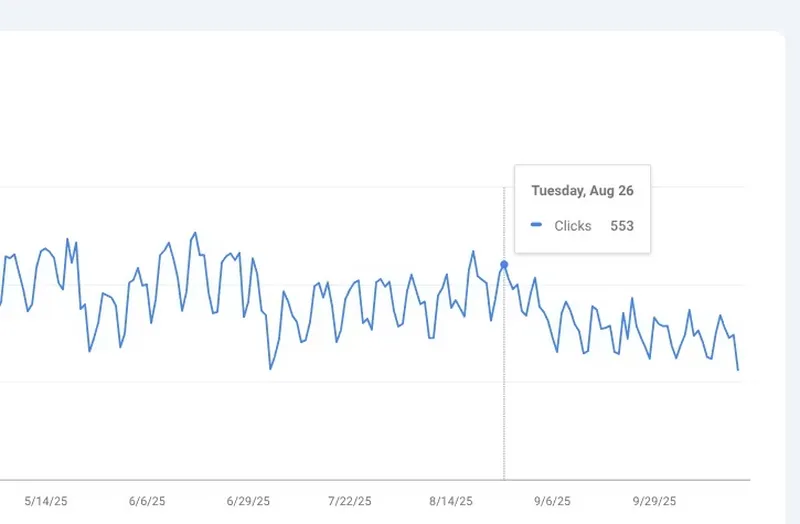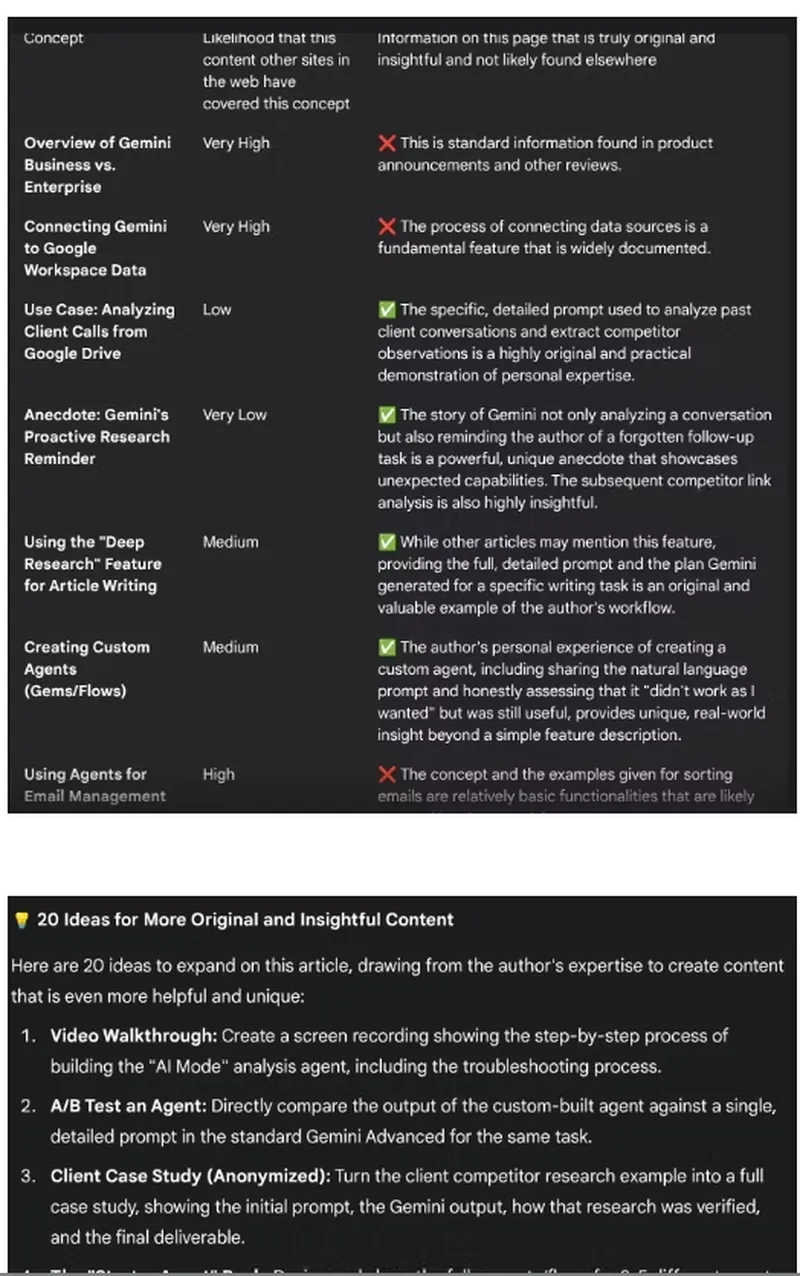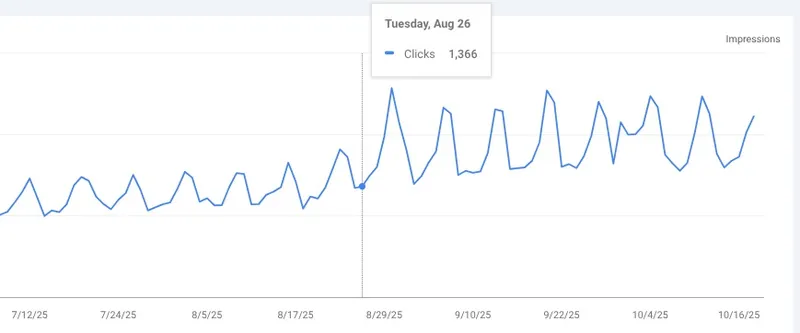Historically, most readers of my content have not had to worry about spam updates. However, I think many of you have indeed been impacted by the August 26, 2025 spam update.
Recently In VP , Head of Search's Liz Reid's interview with WSJ, she said Google has expanded their definition of spam:
"We've expanded beyond this concept of spam to sort of low-value content, right, this content that doesn't add very much, kind of tells you what everyone else knows and doesn't bring it, and try to upweight more and more content specifically from someone who really went in and brought their perspective, brought their expertise and put real time and craft into the work."
A number of the sites that I monitor have decreases in clicks that coincide with the August 26, 2025 spam update. These are not sites you would consider spam. But, they are generally sites that have published a large amount of content primarily for SEO reasons.
How can you tell if you are impacted?
To tell if you are impacted by the August 26, 2025 spam update open up GSC or GA4 and put your cursor over that date. Can you see an obvious decline in clicks that happens on, or shortly after that date?

Note: you can't really tell much by looking at impressions and average ranking position because the issue where Google removed the ability to search with &num=100 caused most sites to see an increase in average ranking and decrease in impressions starting around September 11. But, if clicks are down following August 26 it may be that Google has deemed your content to be unoriginal and not adding value. It's also worth checking your main topics on Google Trends to ensure that this decline is not simply due to changes in searcher behaviour.
Here's how you can tell which pages are impacted
In GSC, Compare Aug 26, 2025 - Sep 23, 2025 to the previous 4 week period, July 28, 2025 - Aug 25, 2025.
Then click on Pages and look for ones with a large click difference.
Or, better yet, export those pages to Google Sheets by clicking on Export top right, insert a column to the right of Column C and use this formula:
=B2-C2
Copy that down the entire column.
You can then right click on Column D and sort from A to Z and you'll see pages in order of how many clicks they have lost.
If you've lost clicks on just 1 or 2 pages, it likely wasn't the spam update. But if you've lost clicks on a lot of pages, see what patterns they follow. Are they all blog pages? Do they all belong to a particular category? Are they pages that were written primarily for the purpose of SEO?
Bonus: Use my originality Gem for ideas on improvement
If you subscribe to the paid content in my community, the Search Bar, you can use my Originality Agent. Input your url and it will tell you whether the page has truly original content. It will also give you 20 ideas for improving that content.
Here's a peek at what the Agent said for my review of Gemini Enterprise.

What if you saw an increase following August 26?
A number of the sites I monitor saw beautiful increases that coincide with the rollout of this spam update.

This may be because spam sites above you were demoted. Or, it could possibly be that these pages are being rewarded for their great content. It may be worthwhile doing the above exercise and looking at what you've covered on these pages that showcases your real world experience, or perhaps whether you've added unique and helpful images and charts. You can use this observation to help improve the rest of your content.
Can you recover?
Spam updates are tricky. Google is likely using machine learning systems to identify pages that have patterns that are similar to pages they've deemed to be unoriginal. I wrote more about this in this post with my thoughts on SpamBrain. For most sites that are impacted by the August 2025 spam update, you are unlikely to recover the traffic for each page that lost rankings and clicks. However, if you are able to improve your content so that it is truly original, and if you can do that on a significant number of pages on your site, you likely can see improvement.
Original does not just mean in words only. Ask yourself, "What does this content add to the body of knowledge on this topic on the web that currently does not exist?"
In December of 2022 Google added "Experience" to E-A-T. Most truly original and helpful content is borne out of real world experience. For many years Google needed us to provide informational content, but now that AI can answer most informational queries, what truly is needed in Search is experiential content. This is often difficult for an SEO to produce on their own!
Here is a strategy that several super smart SEOs that I recommend use when doing SEO for businesses. Do a regular video call with the owner or staff of the business you are working with. Ask them about what they did in their business this month. What questions did people ask? What's new in their industry? What do they wish was covered on the internet for their topics that currently is not? Gab for a full hour with the business owner, then give the transcript to your favourite LLM and ask it to extract ideas for content from it that draw from the business owner's experience and expertise. It is very difficult to create truly experiential and original content unless you know a business thoroughly.
For this reason I think it will be difficult, although not impossible, for sites impacted by the August 2025 core update to recover.
If you liked this, you'll love my newsletter:
Or, join us in the Search Bar for up to the minute news on Search and AI. The News feed is free. And then there is extra content, conversations and Google Meet calls with me, Marie, in the paid area.



Comments are closed.